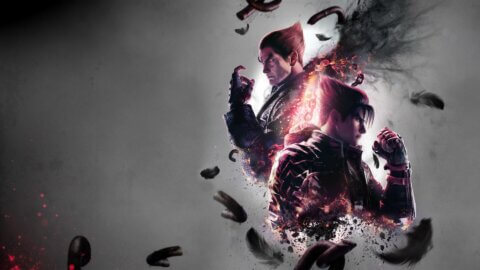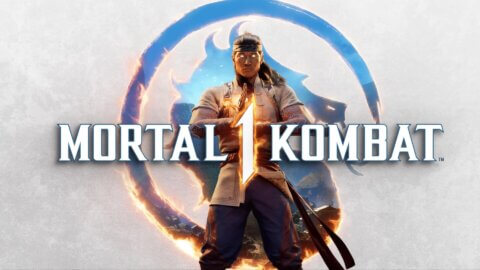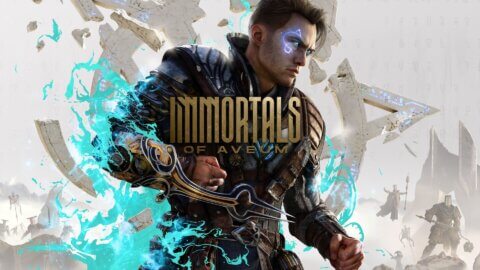Many games market themselves with the promise of providing a truly branching narrative experience, driven by the choices the player makes in game. Many of those game’s fall short in delivering what they promised often providing an illusion of choice where the players “choices” throughout have little to no consequence and lead to one of two potential endings. Thankfully Detroit: Become Human not only delivers on this promise but it also gives us an immersive, grounded story with exceptional character performances that will drive conversation between gamer’s discussing what went down in “their” Detroit.
Detroit: Become Human is the latest game developed by Quantic Dream, best known for their work on Heavy Rain and Beyond: Two Souls. This game also keeps true to the strengths the studio has shown off in those titles by providing photo realistic performance capture with high profile actor’s and choice based gameplay that can divert your path through the narrative.
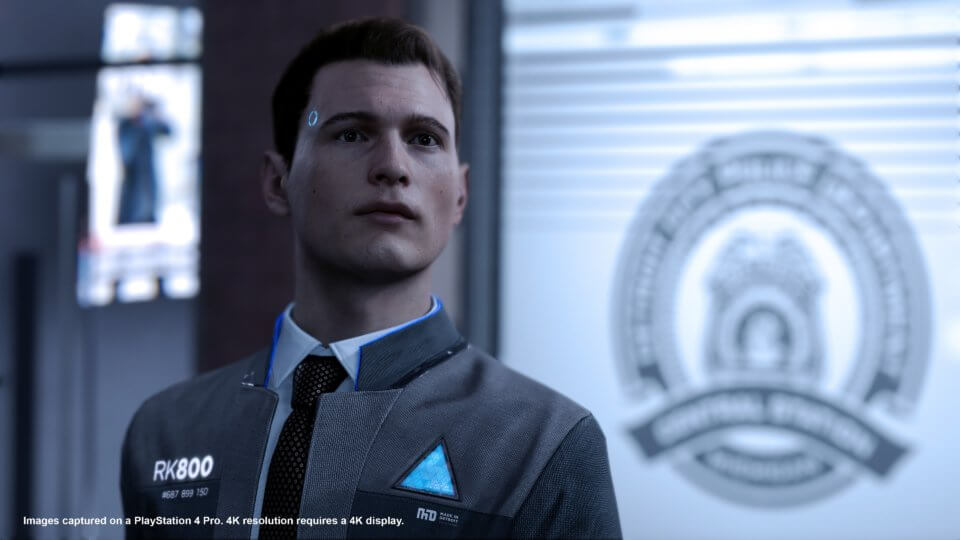
Detroit: Become Human is set in the year 2038 in a futuristic vision of our real world Detroit. In this world Quantic Dream have created, androids have become embedded in everyday life and take on a number of tasks set by their owner. These can vary from being a carer for the disabled, household maid, council worker or even an analytic police detective. As you may expect, as it also reflects the thoughts people are raising in our real world today, not everyone is a fan of the androids because they have taken existing jobs away from humans. While others look down on them as a lower level life form that should be nothing more than conforming slaves designed to be obedient to any human demand.
When androids begin to push back on the way humans treat them and seem to develop emotions, the FBI gets involved to investigate and eliminate these models they’ve dubbed ‘Deviants’. One of the protagonists, Connor is a prototype model that assists the police investigation and although he is an android himself vows to stand by his programming and get to the bottom of the Deviant’s case. He has the ability to analytically reconstruct and analyse crime scenes to gain further insight into the minds of the Deviant’s and what their motives may have been.
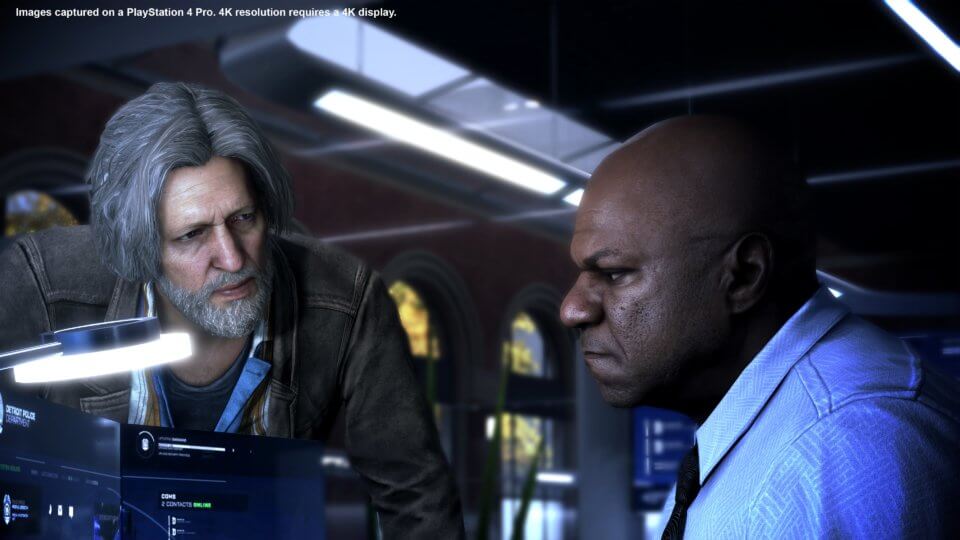
The second playable character Markus, is an ex-helper robot, who after facing an emotion fueled disaster at home decides it’s time for the androids to stand up, no longer remain silent and fight for rights that he believes his kind deserve. Leading to the rise of an android revolution group that will leave a life long impact on Detroit.
Rounding out the playable characters is Kara, who was first introduced in the PS3 tech demo Quantic Dream produced back in 2012. Kara after showing emotion by protecting a young girl get’s classed as a Deviant and finds herself on the run from those trying to eliminate the corrupted androids. With her primary goal being to find a safe, new life for herself and the young girl she is driven to protect.
Each chapter of the game changes up which android you take possession of as you progress further through the overarching narrative you’re crafting. And is often directly impacted by choices you made in the previous chapter with one of the other characters and on many occasions choices made many chapters prior you may not have realised would come back to assist or hinder where you currently are.
Each character has a direct impact on the outcome of the overarching story and by breaking up the experience across multiple protagonists it provides 3 separate perspectives for this massive branching story.
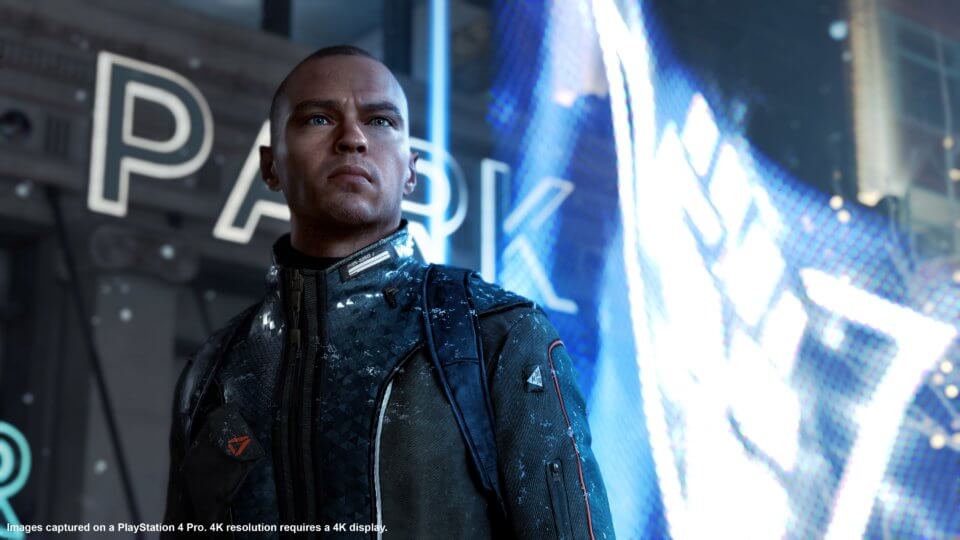
Detroit also has no game over screen. You’re made to live with the choices you’ve made. It can result in certain characters not liking you because of decisions you’ve made and yes, characters can even die. Not just side characters, but if things aren’t handled well it’s possible to have Connor, Markus or Kara not make it to the end of your story. If you absolutely have to do so, the option is there to replay a chapter to aim for a different outcome but it’s recommended by Quantic Dream to do one full playthrough not trying to reverse any choices before going back to see the different outcomes of the chapters. This is how I played it through my first time and also agree it’s the way you should enjoy it for yours too.
At any point you’re able to track in real time the number of possible branches you can take via the flowchart option in the menu. It won’t tell you what they are if you haven’t found them yet but does let you see that there are X number of ways you could have handled a specific moment. And upon completing a chapter you can see what percentage of the world and your other friends on your friends list took the same path you did.
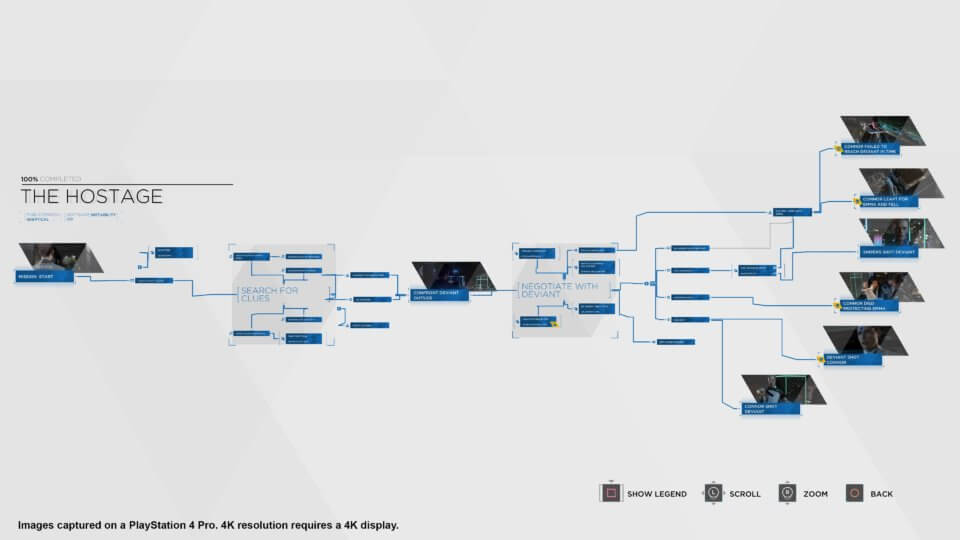
Although Detroit: Become Human is set in a 2038 and focuses on robotic beings, Quantic Dream have done a great job not making this a sci-fi game. It doesn’t contain the same sci-fi tropes you’d expect to find in media with similar themes to this game. No flying cars, sleek modern designed skyscrapers or pristine futuristic streets. This Detroit is incredibly grounded and feels like a real lived in place. There’s nothing that seems too far outside the realms of possibility of what we may achieve in the next 20 years. It’s a grounded world that feels like current day Detroit but with access to more advanced versions of technology we already have today, making this story seem less like fantasy and more like a realistic possible future we may find ourselves in one day.
One of the first things you, and likely anyone that watches you play Detroit will notice is how visually gorgeous it is. Quantic Dream have worked on a new engine for the game that has a big focus on better cinematic lighting, cinematography camera improvements and realistic environmental depth of field. When this is combined with photo-realistic performance capture, the one thing everyone knows Quantic Dream excel at, it results in a visual and technical masterpiece.
There was the occasional moment during a scene where the lip sync wasn’t quite perfect and because the rest of it looks so great it slips into the uncanny valley and does temporarily break the immersion factor of the experience.
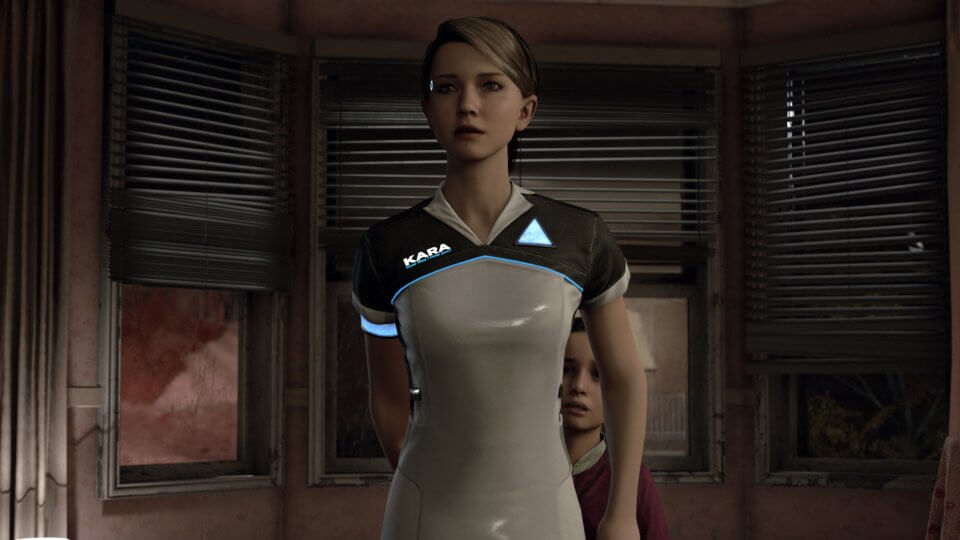
The performances of the main cast are one of the key highlights of the game that made it hard to put down the controller. The performances were powerful and full of emotion and during longer cutscenes I forgot I was playing a game at times because the characters look just like their real world counterparts. Their existing acting experience have done wonders bringing these characters to life, despite most of them not having a heartbeat. With special mentioning not only going to the main three, Bryan Dechart (Connor), Jesse Williams (Markus) and Valorie Curry (Kara) but also Clancy Brown who’s character Hank is extremely deep (if you investigate his path’s), well developed and one of the standout characters of the game.
Quantic Dream have added details many players likely won’t even notice to help make the experiences playing as each of the three characters feel different. Each of the three have their own soundtrack, each created by a separate composer. Each have a different colour theme and filter, with Connor being blue and futuristic, Kara being quite neutral and Markus having hints of orange showing he is the shining light in this world.
Scenes with each of them are shot differently with the scene camera being quite fluid, almost shaky for Kara and quite firm and precise for Connor. This level of fine detail is highly appreciated yet I did find that because the camera was positioned in the scenes in a certain way, I often found myself fighting with the camera to better see my surroundings or navigate the character to where I was trying to go.
Even after rolling the credits on the game I can guarantee you won’t be done with it. You’ll likely want to jump straight back in like I did to play it through again to see how certain scenes could have been played out differently or experience new sequences that you haven’t seen at all because of decisions you made throughout.
If you do decide you want to step away from the story for a moment you can access a huge amount of extra’s located from the fourth wall breaking main menu. Here you’re able to spend points earned from completing chapters to unlock concept artwork, soundtrack items, behind the scenes videos and 3D character models.
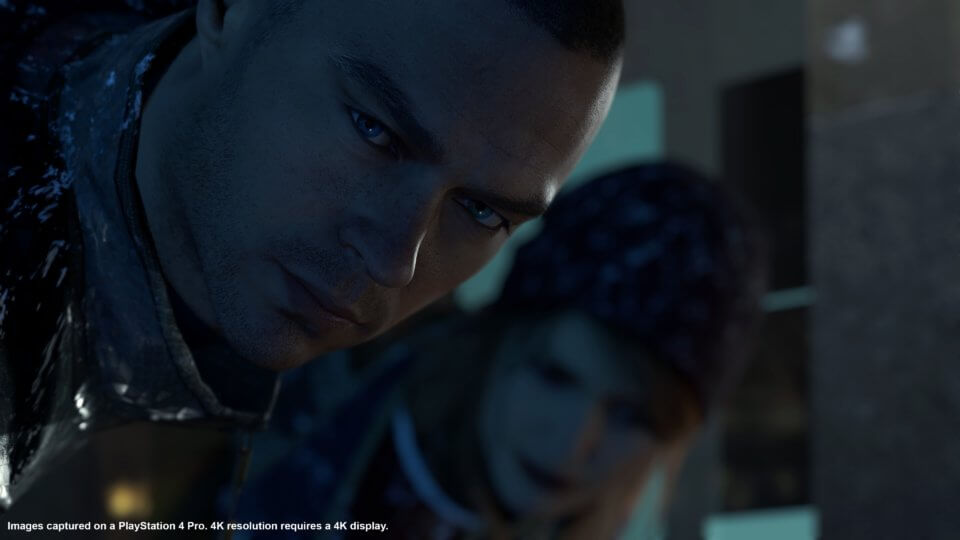
Final Thoughts
Quantic Dream have given us a game that is engaging, packed full of emotion, has brilliant acting performances and carries a very powerful message. It’s almost infinitely repayable without ever having the exact same experience twice because they’ve delivered on their promise of a massive branching storyline, with each chapter having numerous possible outcomes each with a ripple effect that impacts the remaining game. It does have some minor noticeable lip sync issues that I noticed and the camera can be the cause of some frustration, but not to the point that it takes away from the cinematic experience or makes the game unplayable at all.
Hopefully Quantic Dream’s next adventure isn’t another 5 years away because they have an incredible framework here with Detroit: Become Human that I can’t wait to see them build upon.
A PS4 review code was provided by PlayStation Australia for our Detroit: Become Human review.
If you want to see more content like this and never miss one of our frequent gaming and anime giveaways come and Follow Ani-Game on Twitter.
9
- + A truly branching narrative
- + Brilliant character performances
- + Visually stunning
- + Massive replayability options
- - Some lip sync issues
- - You'll fight with the camera at times



